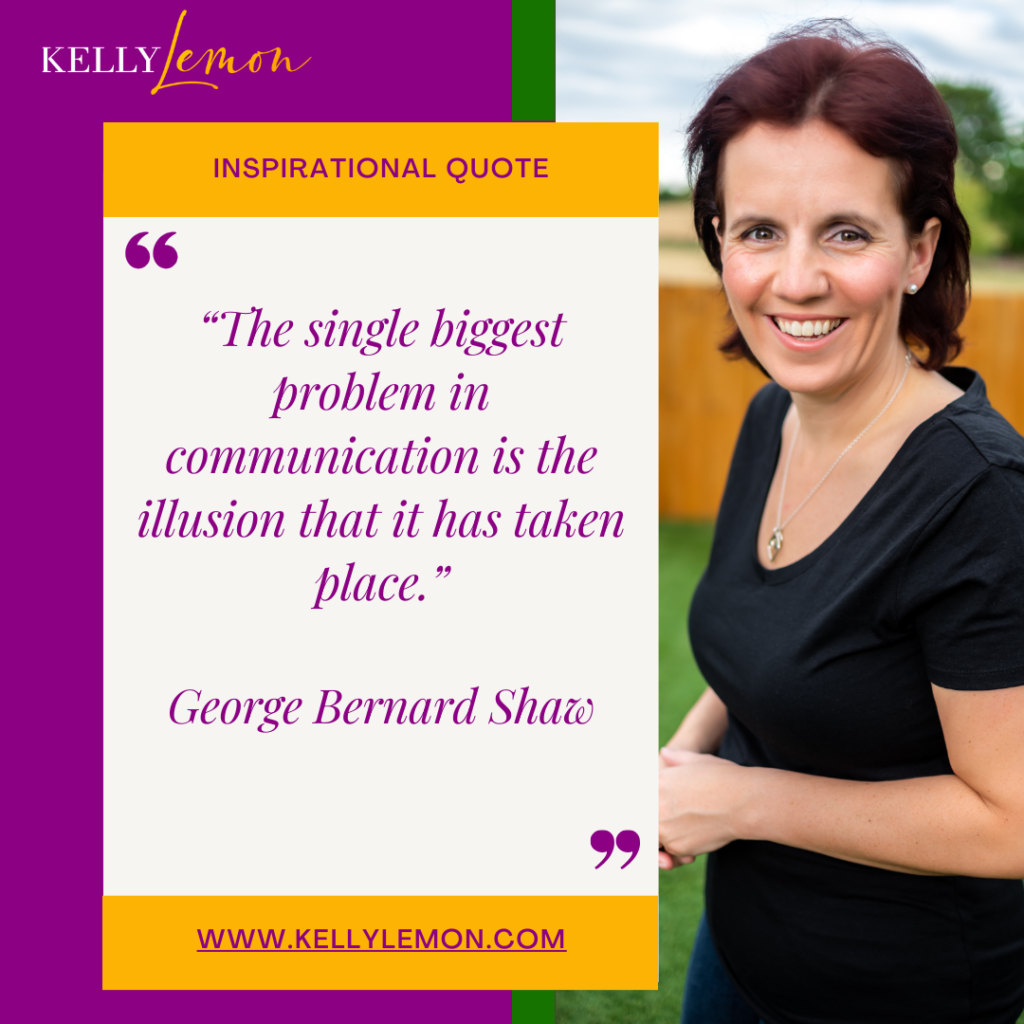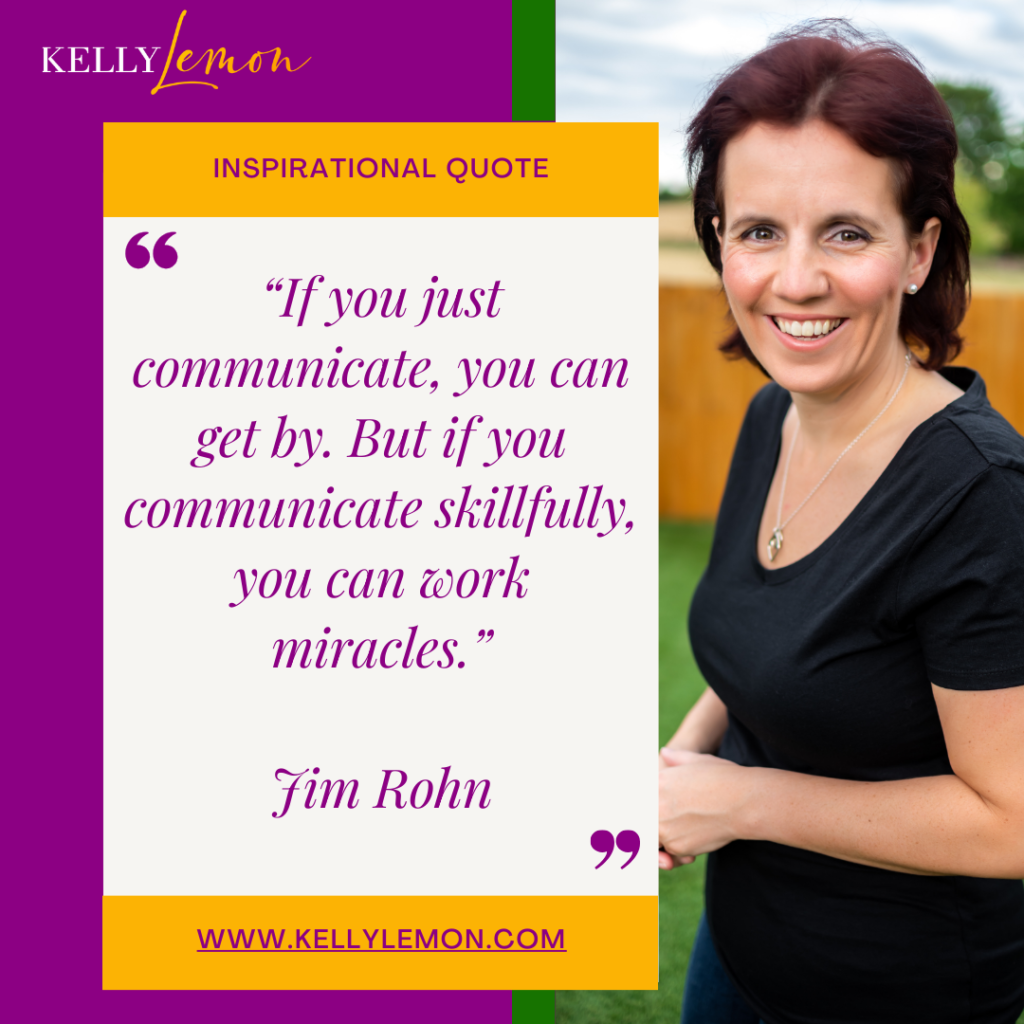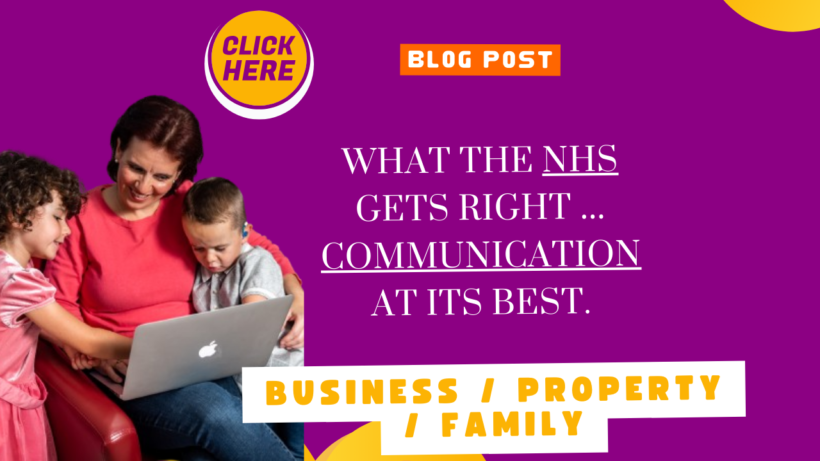This isn’t an article about the NHS, although it is where the scene is set. This is an article about communication and connection. This is an article about transferring information in difficult situation, something the NHS did very well when I needed it most.
24 hours after my son was born I was in theatre and my son was extremely ill. As a family we were living every parent’s worst nightmare, our son was critically ill. There was a lot of moving parts and looking back I was in shock as well as being physically very ill. It was the perfect storm.
To add to that I am quite a literal communicator, i.e. you need to spell something out so I can completely get my head around it. More on that in another blog. I tell you that as in the early hours or what turned out to be quite a journey the doctors kept telling me he was a very poorly boy. To me that meant he wasn’t well, to them it meant the situation was critical. Quite a difference in communication style.
When they could stabilise my son they transferred him to a specialist hospital and it was there I noticed something all the staff did, something that made a massive difference. They communicated effectively. They transferred significant information that was highly complex in a way that was consumable. Even at the time I remember thinking they have been taught this. In essence they were using a framework, a framework I am going to share with you that you can use.
Asking the right questions
In the first instance each professional that sat down with us would start with a question … ‘Tell me what you know and I will fill in the gaps?’
What a question.
The question in itself doesn’t assume anything and it is designed to meet the other person where they are. It also gave me a chance to speak and articulate the thousands of thoughts and bits of information swirling around my head.
Listen
They then sat there and let us speak. They listened intently and looking back I suspect not only were they listening but they were also getting a sense for how we communicated, our style, our reference points, our level of medical understanding. In essence they allowed us to do the work. Whilst they were gathering all the information so they could then fill in the gaps they were also allowing us the space and time to be heard.
Filling in the Gaps
As promised, they then picked up from where our understanding ended and filled in the gaps. Perhaps it was the language I had used but I noticed they used a lot of that language back in the answers they then gave. They kept the information simple and I suspect adapted their content to our level of understanding. Rather than trying to bring us up to their world they came and translated the information into our world. And it worked. They did this exercise with us multiple times and the more we were asked – tell me what you know – the more our understanding grew. It didn’t change the information but that sense of clarity helped us feel we had some sort of sense of control.

Opportunity for Questions
Finally, and perhaps most importantly, they always left time and space for questions. As I say I wasn’t well at the time and I often needed to go over things again and again as I came to terms with our situation.
But they allowed us that space and demonstrated extreme patience for what I am sure from their perspective were very basic and repetitive questions, and often questions they couldn’t answer. I am a long-term thinker by nature and I know I asked several questions they simply couldn’t answer. But they allowed me to ask them, they allowed me to work through them and often come to the conclusion myself that those questions couldn’t be answered.

Communication is a key skill in life, after all, it’s how we connect. But when life is extremely hard communication becomes an essential skill and from my experience I have to say the NHS did it extremely well. Not only did they save my son’s life and give him excellent care, they coached us through the process. They had to take the reins and there were many decisions we were not part of but they did bring us into the fold and for a service that is under so much pressure I am forever grateful they have obviously been taught the framework above to help make a hard situation slightly easier.
And this is a framework I now adopt. Whenever coaching people on property investment or financial management I like to start where they are. In the past I have perhaps been guilty of sharing all my ideas and nuggets etc without really assessing what the person in front of me wants or needs. So the above framework is useful for me; not just in my business but in my personal life.
Let me ask you … when you are transferring information, how do you go about it? Do you listen, do you allow the other person to feel heard and seen? It’s a skill that takes practice but it can be done, it can be learnt and used.
If you are feeling a lack of clarity in your finances then I offer a complimentary call to meet you where you are and fill in any gaps, answer any questions and help identify things that can help. Feel free to book a call on my website if you want to work through the framework (www.kellylemon.com).












